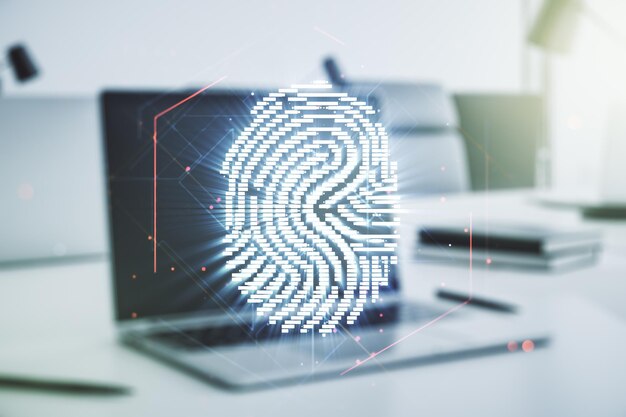Your Guide to What To Do If Your Social Security Number Is Compromised
What You Get:
Free Guide
Free, helpful information about Social Security FAQ and related What To Do If Your Social Security Number Is Compromised topics.
Helpful Information
Get clear and easy-to-understand details about What To Do If Your Social Security Number Is Compromised topics and resources.
Personalized Offers
Answer a few optional questions to receive offers or information related to Social Security FAQ. The survey is optional and not required to access your free guide.
What Steps Should You Take if Your Social Security Number is Stolen?
In a world where data breaches and identity theft have become increasingly common, the disclosure that your Social Security number (SSN) is compromised can be both shocking and overwhelming. However, it's crucial to act swiftly and methodically to protect your identity and financial well-being. Here’s a step-by-step guide on what to do next, followed by valuable resources to help safeguard your future.
Act Fast to Minimize Damage
Once you suspect or confirm that your SSN has been compromised, time is of the essence. Here are vital steps to take immediately:
Contact the Social Security Administration (SSA): Report the theft and any suspicious activity regarding your SSN. They can offer guidance and support.
Place a Fraud Alert or Credit Freeze: Notify one of the three major credit bureaus—Equifax, Experian, or TransUnion—to place a fraud alert or credit freeze on your credit report. A fraud alert warns creditors to take extra precautions before opening new accounts in your name.
Monitor Your Credit Reports: Regularly check for any unauthorized transactions or newly opened accounts. You can obtain a free credit report annually from each of the three major credit bureaus.
File an Identity Theft Report: Use the Federal Trade Commission’s (FTC) IdentityTheft.gov website to file a report. This will help you create a personal recovery plan tailored to your situation.
Inform Financial Institutions: Contact your banks and credit card companies to notify them of potential fraud. They may need to monitor your accounts more closely or issue new cards.
Explore Assistance Programs
Identity protection is not just about immediate action; it's about securing your financial future. Knowing what resources are available can empower you further. Here are some programs and tools to consider:
Government Aid and Financial Assistance Programs
SSA Extra Help: If your identity theft affects your financial capacity, you might be eligible for support programs like the SSA’s Extra Help with Medicare prescription drug costs.
Temporary Assistance for Needy Families (TANF): This program offers financial aid to families in need, which can be crucial if identity theft leads to financial distress.
Credit Card Solutions
Credit Monitoring Services: Consider enrolling in a credit monitoring service that can alert you to key changes in your credit report, such as new inquiries or accounts.
Credit Counseling: Non-profit credit counseling agencies provide guidance and resources to help manage your finances, which can be incredibly valuable if your credit score is affected.
Educational Grants and Resources
Federal Student Aid: If you are pursuing education and have financial needs compounded by identity theft, explore federal student aid programs, including grants like the Pell Grant.
Scholarship Opportunities: Many organizations offer scholarships to help students facing financial hardships, and being informed about them can provide significant financial relief.
Secure Your Future Financially and Educationally
Identity theft can be a daunting experience, but with the right actions and resources, you can restore your peace of mind and financial security. Whether it’s accessing federal assistance, exploring credit solutions, or utilizing educational grants, these avenues can not only help recover your identity but also set you up for a stable future.
As technology advances, being proactive and well-informed is essential to protect your identity and maintain financial health. Stay vigilant, use the resources available, and rest assured that you are equipped to handle such challenges head-on.
🛡️ Financial Assistance and Protection Resources
- IdentityTheft.gov: Create a personalized recovery plan.
- SSA Extra Help: Financial assistance for medication costs.
- TANF: Temporary financial aid for families.
- Credit Counseling: Non-profit financial advice and planning.
- Federal Student Aid: Grants and loans for education.
- Scholarships: Financial support for students in need.
Acting swiftly and utilizing these resources can make all the difference in securing your identity and future.
What You Get:
Free Social Security FAQ Guide
Free, helpful information about What To Do If Your Social Security Number Is Compromised and related resources.

Helpful Information
Get clear, easy-to-understand details about What To Do If Your Social Security Number Is Compromised topics.

Optional Personalized Offers
Answer a few optional questions to see offers or information related to Social Security FAQ. Participation is not required to get your free guide.


Discover More
- a Social Security Card
- Are People On Social Security Getting $250
- Are Social Security Benefits Taxable
- Are Social Security Benefits Taxable Income
- Are Social Security Benefits Taxed
- Are Social Security Checks Late This Month
- Are Social Security Disability Benefits Taxable
- Are Social Security Earnings Taxable
- Are Social Security Numbers Recycled
- Are Social Security Numbers Reused
